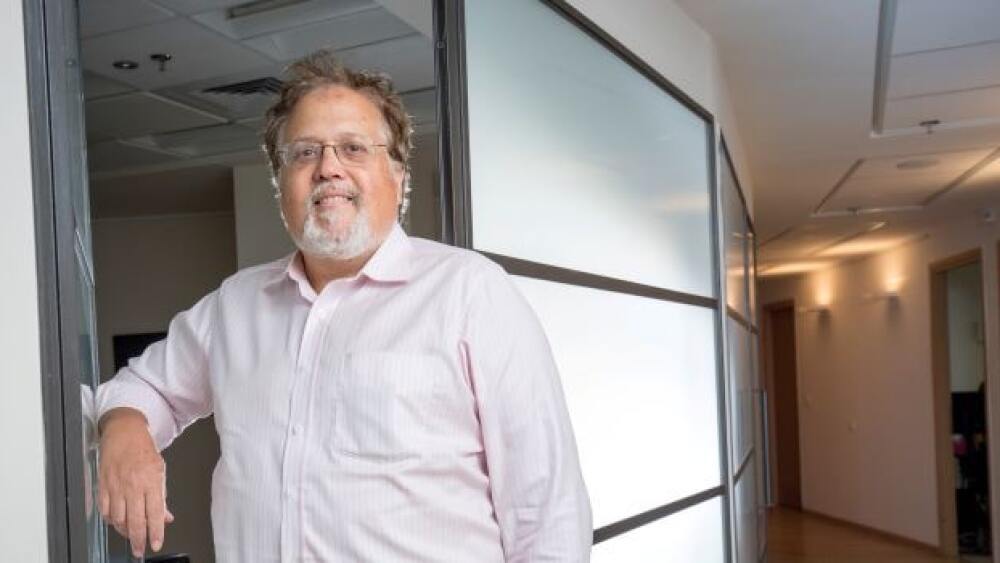ZYESAMI is intended to block the replication of SARS-CoV-2 in the ATII cell, as well as cytokine synthesis, thereby relieving respiratory distress. It is the only treatment in development that targets these ATII cells, and if approved, would be the first drug on the market for COVID-19 patients critically ill with respiratory failure.
NeuroRX Chief Executive Officer, Dr. Jonathan Javitt/Photo courtesy of NeuroRx.
NeuroRX Inc. today announced promising preliminary results from the Phase IIb/III trial of ZYESAMI™ (aviptadil, previously RLF-100), which they are co-developing with Relief Therapeutics for critical patients with COVID-19-related respiratory disorder.
The study of 203 patients demonstrated that, when compared to placebo plus maximum care, the benefit was significant for patients treated with ZYESAMI in addition to maximal standard of care. 15 of 16 comparisons between ZYESAMI and patients treated with High Flow Nasal Cannula therapy and mechanical ventilation favored ZYESAMI at a ratio of 40% or more.
Importantly, 96 patients, 65 of whom were given ZYESAMI, were released from the hospital by Day 28.
Differences in patient survival rates could not be gauged at the 28-day mark, as medical advances in intensive care units have improved since the 1990s when this threshold was first implemented, so the team will be closely following the trial participants through day 60.
“We’re extremely encouraged. The primary endpoint we went for is the toughest one, which is to prove earlier recovery from respiratory failure. We may get there, but drugs that are currently under emergency use authorization that didn’t get there, the FDA gave that emergency use authorization primarily based on fewer days in the hospital,” NeuroRX Chief Executive Officer, Dr. Jonathan Javitt, told BioSpace. “In our case, we’ve treated a much sicker population of patients than the patients who’ve been treated with other EUA drugs, and were able to show a meaningful difference, so we’re pretty excited about that. Certainly, the reactions from patients, from doctors, has been pretty gratifying.”
While he wouldn’t set a date for the reveal of Day 60 results, Javitt did confirm that the final patient was enrolled in the trial right before Christmas, saying, “well, we know what day 60 is, and all I can say is, we’re probably the most eager people in the world to see the answer.”
The Pennsylvania-located NeuroRX entered into a collaboration with the Geneva, Switzerland-based Relief to commercialize RLF-100 in September. The two will share all global proceeds from the sale of the drug for COVID-19 indications.
Last week, the NeuroRX/Relief partnership announced a further collaboration with the University of California Irvine’s UCI Health and the initiation of a Phase II/III clinical trial to investigate the potential of inhaled RLF-100TM administered at the severe stage in preventing progression to critical COVID-19 with respiratory failure.
ZYESAMI is a recombinant form of a naturally occurring peptide found in the lung called Vasoactive Intestinal Peptide (VIP), which has been found to have potent anti-inflammatory/anti-cytokine activity in animal models of respiratory distress, acute lung injury, and inflammation.
VIP has implications for COVID-19 patients, as 70% of the body’s VIP is found within the lung in the alveolar type II cell (ATII), which is critical to the transmission of oxygen throughout the body and is damaged by the infection.
ZYESAMI is intended to block the replication of SARS-CoV-2 in the ATII cell, as well as cytokine synthesis, thereby relieving respiratory distress. It is the only treatment in development that targets these ATII cells, and if approved, would be the first drug on the market for COVID-19 patients critically ill with respiratory failure.
“We look forward to discussing with the Food and Drug Administration and other regulatory authorities the submission of an Emergency Use Authorization (EUA) so that ZYESAMI can be available for treating this population that is at immediate risk of death and for which there is no approved therapy,” said Javitt.






